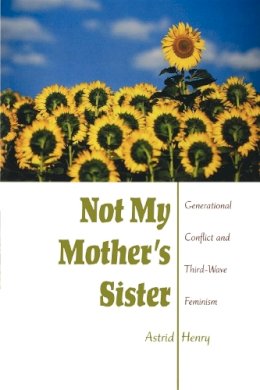
Not My Mother´s Sister: Generational Conflict and Third-Wave Feminism
Astrid Henry
"No matter how wise a mother’s advice is, we listen to our peers." At least that’s writer Naomi Wolf’s take on the differences between her generation of feminists—the third wave—and the feminists who came before her and developed in the late ’60s and ’70s—the second wave. In Not My Mother’s Sister, Astrid Henry agrees with Wolf that this has been the case with American feminism, but says there are problems inherent in drawing generational lines.
Henry begins by examining texts written by women in the second wave, and illustrates how that generation identified with, yet also disassociated itself from, its feminist ... Read more
Just as writers like Wolf, Katie Roiphe, and Rene Denfeld celebrate a "new" feminist (hetero)sexuality posited in generational terms, queer and lesbian feminists of the third wave similarly distance themselves from those who came before. Henry shows how 1970s lesbian feminism is represented in ways that are remarkably similar to the puritanical portrait of feminism offered by straight third-wavers. She concludes by examining the central role played by feminists of color in the development of third-wave feminism. Indeed, the term "third wave" itself was coined by Rebecca Walker, daughter of Alice Walker.
Not My Mother’s Sister is an important contribution to the exchange of ideas among feminists of all ages and persuasions.
Show LessProduct Details
About Astrid Henry
Reviews for Not My Mother´s Sister: Generational Conflict and Third-Wave Feminism
